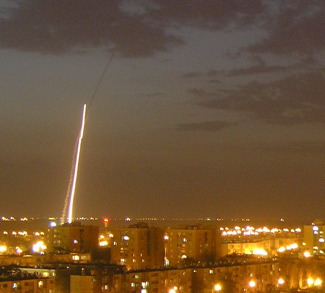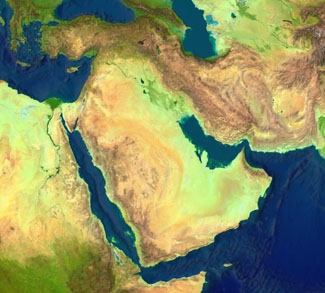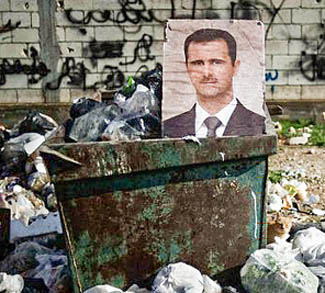Two U.S. officials recently told CNN that the United States has reason to believe that Israel has launched an air strike on Syria. These sources revealed that various U.S. and Western intelligence organizations are increasingly convinced that Israel carried out the air strike between Thursday and Friday, the same time frame in which a large number of Israeli fighter planes were detected over Lebanon.
Another suspected Israeli raid on Syrian targets yesterday resulted in the death of about 300 members of the Syrian armed forces. This military intervention has put the entire region on high alert and Tel Aviv on the defensive. Although the Israeli military has yet to comment, the Israeli government has stressed in the past that they will do whatever is necessary to stop the transfer of weapons from Syria to Hezbollah in Lebanon, which could potentially alter the balance of power in the region. This policy, though certain to lead to a reduction in the number of these transitions, will also increase the chances of a military confrontation between Iran and Israel.
Since the beginning of the Syrian conflict, Israel has largely remained a passive observer and avoided sliding into the intensifying regional chaos. And though Israel has historically had little tolerance for the regime of the al-Assad family, it cannot be said to be an enthusiastic supporter of the Syrian rebel forces either, particularly due to the increasing presence of al-Qaeda and other terrorist elements within their ranks. However, even if Israel has chosen to remain an observer as incidents of cross-border mortar and gunfire spiked, it has long maintained that the transfer of weapons from Syria to Hezbollah represents a red line for Tel Aviv. Recent air strikes demonstrate that Tel Aviv has become increasingly concerned about the potential for such transfers and as such, it may react with further violence in the future.
In the wake of this latest Israeli raid, the Syrian conflict will take on new dimensions that involve several parties, most notably Hezbollah and Iran.The Israelis believe that Hezbollah will not respond to the strike because it is more concerned with the deteriorating situation within Lebanon, and that Tehran would not be overly enthusiastic about a war between Hezbollah and Israel given the toughened international sanctions that would surely result from it.
Even so, Tehran considers the removal of the Syrian regime by foreign military force as a prelude to a similar campaign against Iran, and any decision to respond to an Israeli intervention in Syria will be the decision of Iran’s Supreme Leader Ali Khamenei. He will no doubt consider the loss of Syria as a step towards ending Iran’s ability to build its own nuclear deterrence. Fighting Israel is the core element that provides the rulers of Iran with legitimacy, and this so-called religious legitimacy is what entices their followers to give them control and stay in power despite the enduring remnants of a liberal opposition. Therefore, any abandonment of Syria will be seen in the eyes of Iran’s conservative rulers and their supporters as an abandonment of the core elements of their power and faith.
Fighting Iran in Syria is a precarious security risk for Israel, given Tel Aviv’s core concern of keeping its borders as secure as possible. The primary setting for such a clash will most likely be Lebanon. Moved by Iran, Hezbollah will launch many kinds of operations, since its capacity is not affected by domestic unrest. However, Hezbollah might be particularly anxious because since the assassination of Prime Minister Rafiq Harir in 2005, many groups declared outright their opposition to Hezbollah’s activities. Today, the Lebanese home front – that fully supported them before – is fragmented and Hezbollah’s back is exposed to inside enemies.
In an all-out war, the sheer volume of missiles coming down on the Lebanese cities and the number of casualties that cannot be projected will constitute a great pressure on Hezbollah to stop its activities.
If Israel entered the Syrian conflict, it would instantly become a regional war. An Israeli intervention in the Syrian conflict would give Iran the opportunity to fulfill its ambitions. The typical Westerns/Israeli reaction would be a pre-emptive attack to defuse the threat, which might quickly escalate from targeting Iran’s asymmetric capabilities to its nuclear program.
What we will end up with is a disintegrating Syria, a crushed Lebanon, and an injured Israel from Hezbollah’s shower of rockets and reprisals from Iran.




